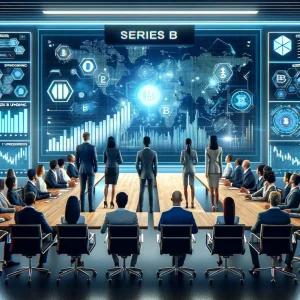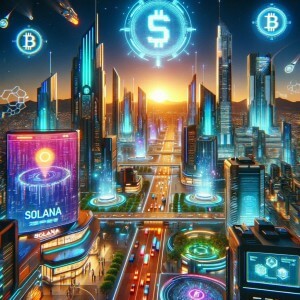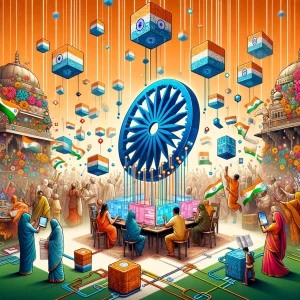There is a sense of urgency in the air. Everyone’s eyes were opened to the possibility that life on the planet is on a countdown. What are some of the revolutionary blockchain processes which can allow us a fighting chance?
Life in lockdown has proven we are capable of ways of working we never thought possible before – it’s crucial we don’t go back to our ‘old ways’ when the crisis is over.
That’s the view of HR Executive and public speaker Richard Summerfield, who has spent the last 10 years on global EXCOs and Boards of high-growth businesses.
The idea that schools will return to normality in September is looking increasingly uncertain. Teachers’ unions are resisting a premature school reopening. Last Wednesday, the Department for Education admitted they hadn’t modeled the dangers of school transmission rates.
All this means is that kids will be staying home for the foreseeable future, meaning effective digital schooling is essential. And yet, a lot still needs to be ironed out as the solution is long-term if we truly want a safe future,
As we start to look at different industries using blockchain, we can see the potential of using these systems in an educational setting. Here are 5 ways revolutionary blockchain processes can help improve the management processes in education.
Steps in improving management processes in education
1. Library and Information Services
Many librarians are familiar with the LOCKSS system, which shares many similarities with blockchain. The LOCKSS (Lots of Copies Keep Stuff Safe) is a digital preservation initiative started by the Stanford University Libraries. The two systems (LOCKSS and blockchain) are both are decentralized, distributed computing protocols that are designed to provide access to digital content and ensure its integrity.
The high transaction and record-keeping costs, loss of accuracy, and losing information to disaster or sabotage can be minimized using a blockchain system.
Perhaps revolutionary blockchain processes will be used to secure user records in libraries, document library acquisitions, and improve collections maintenance. Applications for special collections could allow for identification and discovery of unique holdings. The scholarly record is another use case that lends itself to the blockchain by allowing researchers to record and timestamp their ideas and disseminate knowledge.
Libraries have a major opportunity to use blockchain technology to advance privacy for users, increase collaboration, and transform the way they work with each other and their communities. By keeping up to date, libraries can evaluate blockchain opportunities and make the best use of this technology
Dear Diary
I read that a sovereign individual is a person who believes in rights and power for the individual. They are often someone who doesn’t trust the government and wants more power in the hands of the individual, and who is willing to do things for his/her self.
I read blockchain can bring on the age of the sovereign individual…the right to control my own destiny.
I believe we need to have more control, I want more control, I want to be a sovereign individual.
Saanvi
![]()
2. Improve record-keeping
Students: The ultimate move to becoming a sovereign individual could be fast-tracked with the revolutionary blockchain processes in higher education of changing the “record-keeping” of degrees, certificates, and diplomas. This would give the student control over their credentials without the need for an intermediary to verify them.
Institutions: The complex process of accrediting educational institutions could be simplified with Blockchain to enable them to verify the quality or qualification of each course they teach.
Intellectual property (IP): Using blockchain’s record-keeping ability would create a tool solving management problems. This could be used to determine if an idea or invention is unique or to register IP assets, copyright, and patents.
3. Verifiable lifetime educational transcript
A virtual transcript or record of all educational achievements throughout one’s entire lifetime, stored on the blockchain would create a useful digital asset that a student would use as they progress from job to job.
Benefits:
- reduce CV fraud and qualification records
- Student applications: streamline student transfers between universities
- reduce the manpower overhead needed to verify credentials
4. Payment using cryptocurrencies
The complex process of co-ordinating payments between the many parties (the student, parents, scholarship-granting agencies, financial institutions, governments, and educational institutions) could be streamlined using cryptocurrencies.
5. New business model
The focus on how blockchain could be used in education has focussed largely on the record-keeping side of thought. Woolf University had aspirations of becoming the first blockchain-powered, nonprofit, borderless university.
In 2019 however, the word “blockchain” disappeared from their website indicating that they had challenges with implementing the idea of using tokens to pay for courses.
In foresight…
Revolutionary blockchain processes are waiting to be applied in education, but the implementation needs improvement and will rely on mass adoption of the concept to give the blockchain university idea critical mass to take off.
Despite the potential of blockchain technology and its impact on an ever-evolving global economy, change is now the normal state of businesses. Yet, organizational change does not come easy, and many organizations fail to make the changes that are necessary for their survival.
If you feel that you can make that leap but encumbered by doubts on how to go about it, let’s chat.





